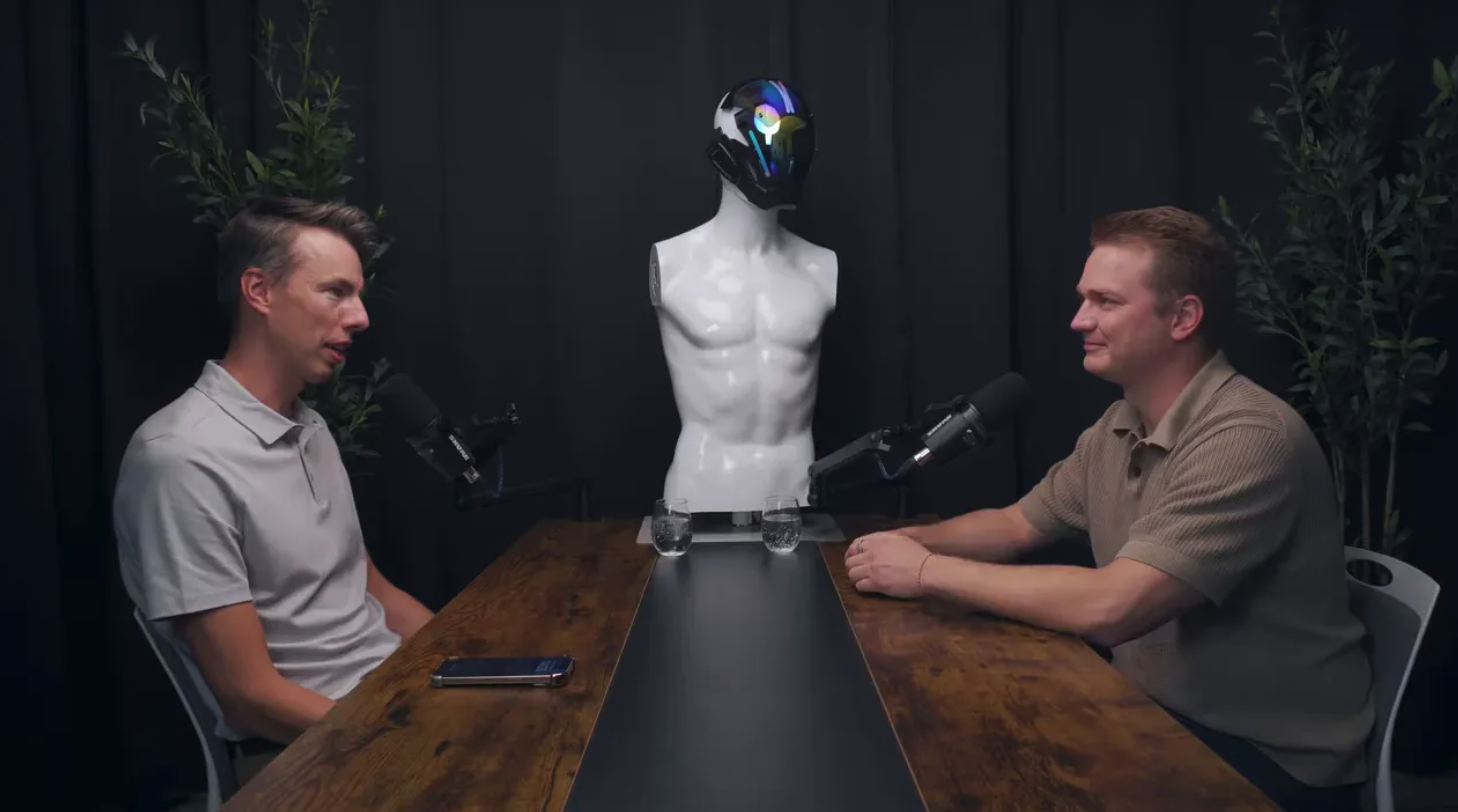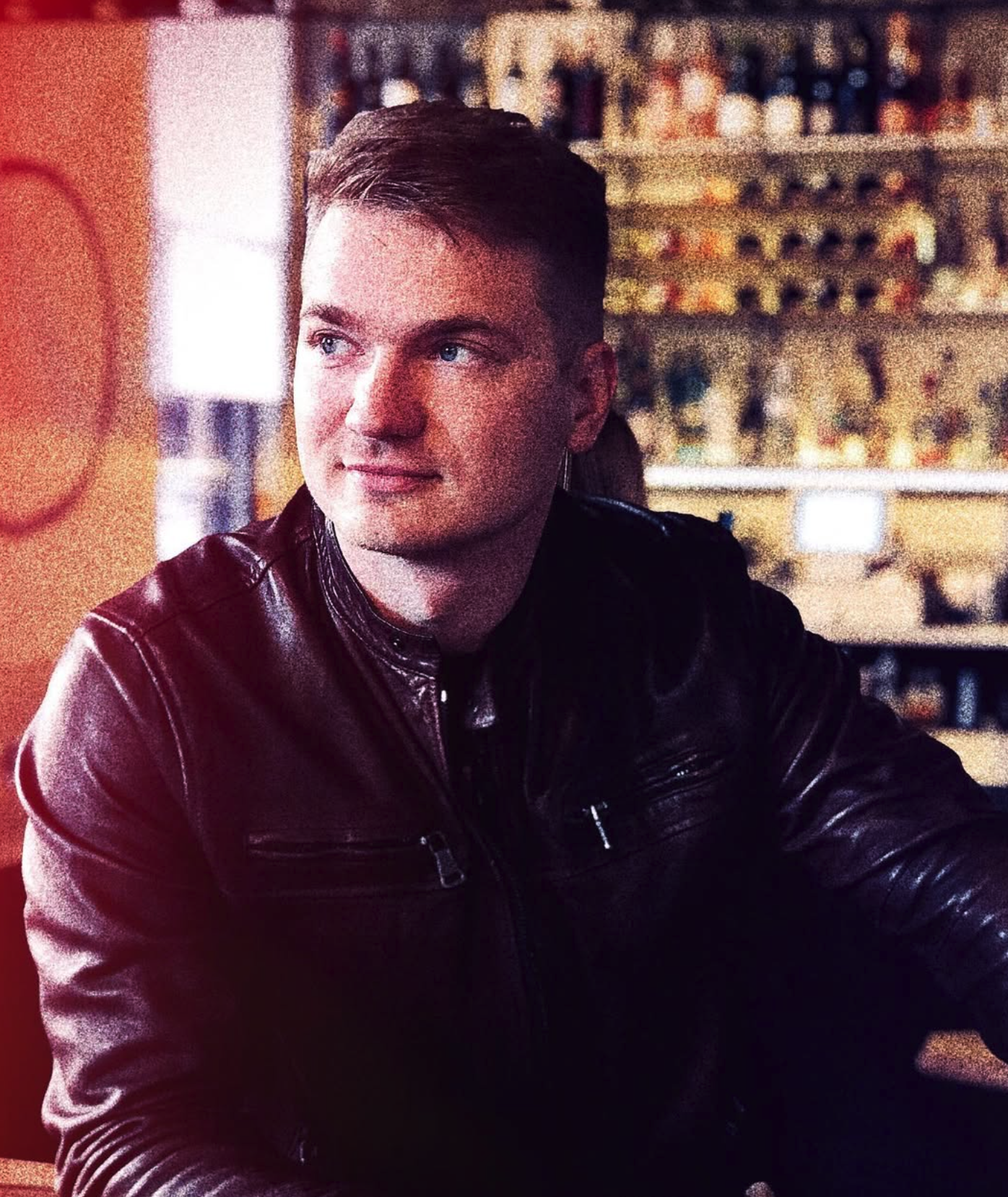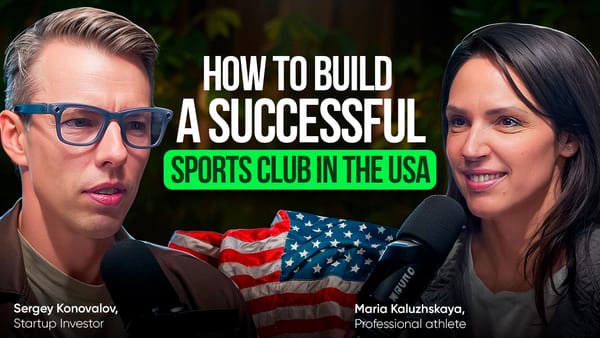How the Bay Area Supercharges Entrepreneurs

A conversation between Sergey Konovalov and Alexander Khambir

What if a job interview turned into your first contract — and launched your business? That’s exactly what happened to Alexander Khambir, a director and producer who came to the U.S. with a background in video production and is now building 1703 Media, a startup focused on automating post-production.
In this interview, we trace Alexander’s journey from Kazan to California, his early freelance hustle, cultural adaptation in the American business world, and how AI is transforming the creative industry.
“The entrepreneurial energy here is contagious. You simply can’t not start a company.” — Alexander Khambir
Who is Alexander Khambir?
I’m a filmmaker, producer, and founder of both a video production studio and 1703 Media, a startup rethinking how content gets made. Since moving to the U.S., I’ve worked with dozens of clients across industries. I’ve lived in the Bay Area since 2016 — and it’s here that I’ve found the right energy and the right problems to solve. Our main focus now is streamlining post-production so that teams can create more social media content, faster and cheaper.

From Dresden to Kazan to California
I was born in Dresden, grew up in Kazan, and ended up studying journalism at the American University in Bulgaria — mostly thanks to a generous 60–70% scholarship. Like many students, I took part in the Work & Travel program to earn money for the school year. I worked as a barista, server, and kitchen assistant — jobs that gave me my first real experience with American culture. That summer hustle taught me more than any class could about how things actually work here.
Why Bay Area?
Honestly, I never planned on the U.S. — I had my eyes set on Europe, maybe Germany. But my wife won the Green Card lottery, so we moved. And once we landed in the Bay Area, I felt something shift. The pace, the mindset, the people — it’s a place that nudges you to build something of your own.
How a Job Interview Became a Startup Launch
I walked into a startup called Epic Impact to interview for a marketing role. Toward the end, I started talking about how they could use video to drive sales. The CEO listened and said, “I’m not hiring you… but I want to hire your company to make videos.” Only problem? I didn’t have a company yet.
So I registered one that same week. They became my first client. We started producing weekly marketing and training videos. It was a crash course in sales, pitching, and execution — all at once.
Building a Business, One Client at a Time
Most of our early growth came through word of mouth. To keep costs down, I moved most of the post-production work to Bulgaria and other post-Soviet countries. We shot on-site in the U.S., but the editing, animation, and motion graphics were handled remotely. It worked — but scaling brought new challenges: inconsistent workloads, managing remote teams, and navigating expectations with local videographers.
Cultural Curveballs
One of my biggest missteps? Being too blunt. In Russian culture, directness is normal — in the U.S., it can feel like crossing a line. Americans also avoid discussing price too early; they want to build rapport first. Early on, I’d quote super low to win the deal, then raise prices later. That backfired — clients anchored on the first number. Now, I ask about budget first and tailor options to fit.
How to Network in the Bay
People here are generous with introductions — especially on LinkedIn. They’ll invite you to events, offer resources. But friendships form slowly. In the Russian community, you grab drinks and you’re friends. In the U.S., it takes years to move from professional contact to personal friend. I made it a habit to show up, share resources, and help others. That’s how the trust builds.
From AR to AI: Startup Trials and Lessons
Before 1703 Media, I co-founded two other startups. One of them was an AR tool for kitchen planning — you’d scan your kitchen, and it would generate a layout. We went through the Founders Institute, but the product hit a wall. Still, I learned a lot: how to build a team, iterate on ideas, and stay grounded in reality.
What 1703 Media is Really About
Our thesis is simple: if you have a bank of raw footage, AI should help you make a video from it — fast. We’re building two libraries:
- Narrative — understanding what’s being said and how the story flows
- Visual — tagging B-roll, graphics, and inserts
The editor becomes more of a creative director — spending less time on drudge work, more on making real choices.
Can AI Actually Edit?
We ran a test using Claude. We fed the model 10 full-length interviews, transcribed with timecodes, and asked it to generate rough cuts based purely on the transcripts. It worked. Claude structured the narrative and identified the clips to use.
It felt like a breakthrough — and a warning. That semantic slicing, the “assembly” part of editing? It’s already automatable.
Threat or Opportunity?
There’s no question AI is a threat — especially to post-production and low-level editing. But it’s also a huge opportunity. If we can structure our libraries and workflows right, we can build a tool that delivers better value, faster.
The big players — like OpenAI — probably won’t rush to solve documentary editing. That gives niche startups like ours a real shot at building something meaningful.
Bay Area Reality Check
What keeps you up at night?
- Pace — You’re always in motion. It’s easy to burn out.
- Housing — Prices are insane. Renting still makes more sense than buying.
- The Economy — Everything feels overinflated. If a correction hits, marketing budgets will be first to go.
How do you stay grounded?
Small steps. I don’t obsess over macro trends. I focus on what’s next, not what’s overwhelming. Travel, exercise, short breaks — they help too.
Quickfire Round
Are you earning more now than in a job?
Yes. Several times more.
When’s the right time to move abroad?
The earlier, the better. Integration takes time.
Which country do you feel you belong to?
I’m a global citizen. I hold multiple passports.
Where should you move in the U.S.?
Depends on your field. For tech founders, the Bay Area. You speak the same language as everyone building stuff here.
Final Advice to Immigrant Entrepreneurs
Integrate fast. Go to meetups. Learn the cultural rules — especially in sales. Don’t fear tech. AI isn’t just a threat — it’s a tool. If you know your niche, you can automate smarter and build better. Become a domain expert. That’s your edge.




